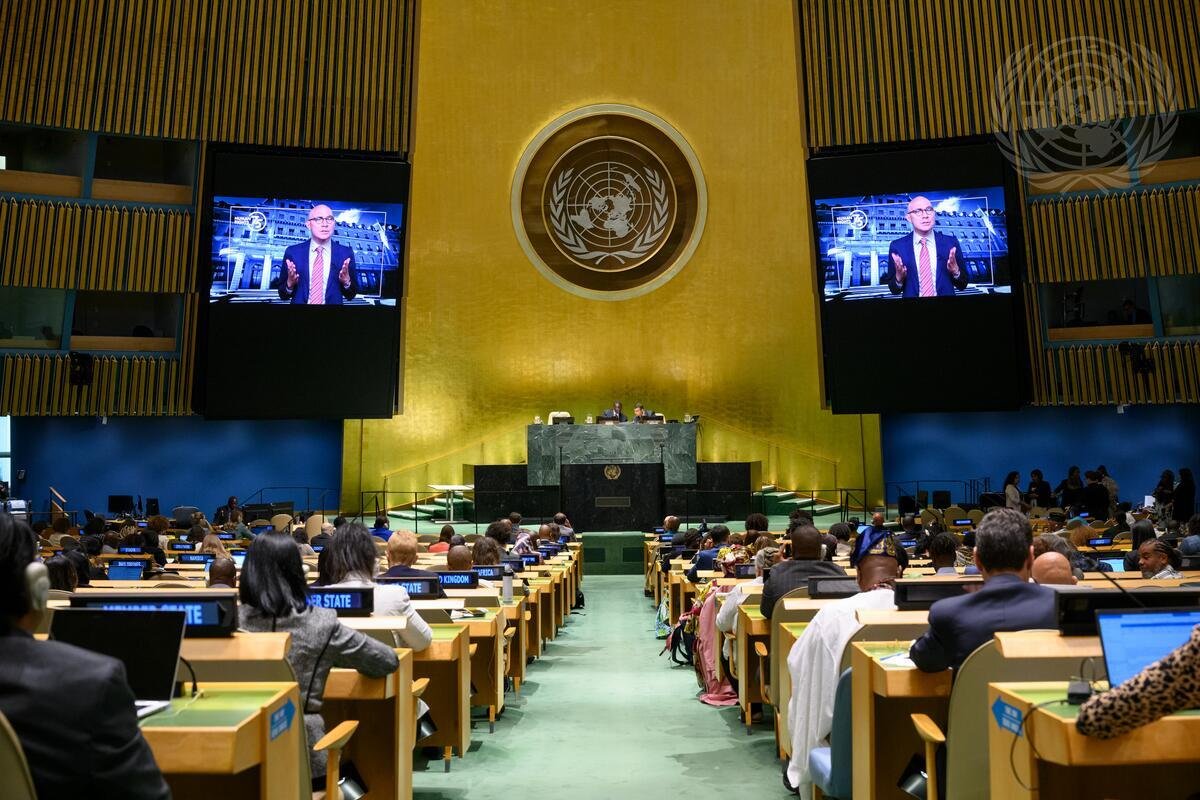Brazilian Black Movements Present a Letter with Demands at the UN, in New York
WBO Press release June 1st
Group of 11 organizations call for racial reparations ‘from a Brazilian perspective’
Entities want Brazil to host the third edition of the UN Permanent Forum of Afro-descendants in 2024
A group of 11 organizations of the Brazilian Black movements presented this May 30th, at the Permanent Forum of Afro-descendants of the UN, which takes place in New York, a letter in which they defend the adoption of an agenda of racial reparations from a Brazilian perspective.
The group also requests that the next edition of the Forum take place in Brazil. This UN event was created in 2021, had its first meeting in 2022 in Geneva and the second in 2023 in New York.
"We emphasize the fight for reparations, including the recognition of slavery as a crime against humanity and the elimination of racism and racial discrimination, which are barriers to accessing rights and result in genocidal practices against the Black population", says the text, proposed by a group of 11 organizations that make up the GT (Grupo de Trabalho) Racial of the Washington Brazil Office (WBO), an independent and non-partisan think tank that specializes in promoting cooperation and knowledge about the Brazilian reality and offering support to the international work by civil society, social movements and other sectors of Brazil in Washington, in defense of democracy, human rights, the environment and freedoms.
The group makes recommendations for a redress policy in six areas, presented as follows:
Promotion of economic justice and the world of work: Structural transformation of the economic, tax and fiscal system to meet human needs, prioritizing sustainable development and positioning Brazil as an environmental reference.
Socio-environmental rights and the right to land and territory for rural, riverside and quilombola populations: Recognition of the centrality of racial issues in debates on the climate crisis, recovery and preservation of areas inhabited by Black, Indigenous and Quilombola populations, with the direct participation of these groups in environmental policies.
Right to the city for Black communities in favelas and peripheries: Guarantee of dignified living conditions, with access to public services, investments in housing programs, infrastructure and popular participation of those most affected by social inequalities. Combating racism in the right to the city, including the use of facial recognition technology, based on algorithmic racism, as a public safety tool.
Right to education, culture and memory: Defense of cultural and educational policies with public investments that prioritize diversity, autonomy, protection of Black, indigenous and peripheral people's histories.
Strengthening Black political participation and representation: Expansion of the presence of Black people in the executive and legislative branches and in other spheres of political participation, with State action to guarantee spaces for civil society, such as Black movements and Black women in the process of the formulation, supervision and effective implementation of public policies.
Implementation of the action plan for the decade of people of African descent in Brazil: Implementation of Resolution 69/16 with the construction of a reparation policy at the national level and the participation of the Black movement in the elaboration, follow-up, and monitoring.
The letter is signed by the following organizations:
Center for the Study of Labor Relations and Inequalities – CEERT
Collective of Black Entities - CEN
Agbara Fund
Geledés – Institute of the Black Woman
Steve Biko Cultural Institute – ICSB
Maria and João Aleixo Institute – IMJA
Marielle Franco Institute
Peregum Black Reference Institute
Nzinga Black Women's Collective
ODARA – Black Women's Institute
UNEAFRO BRAZIL

